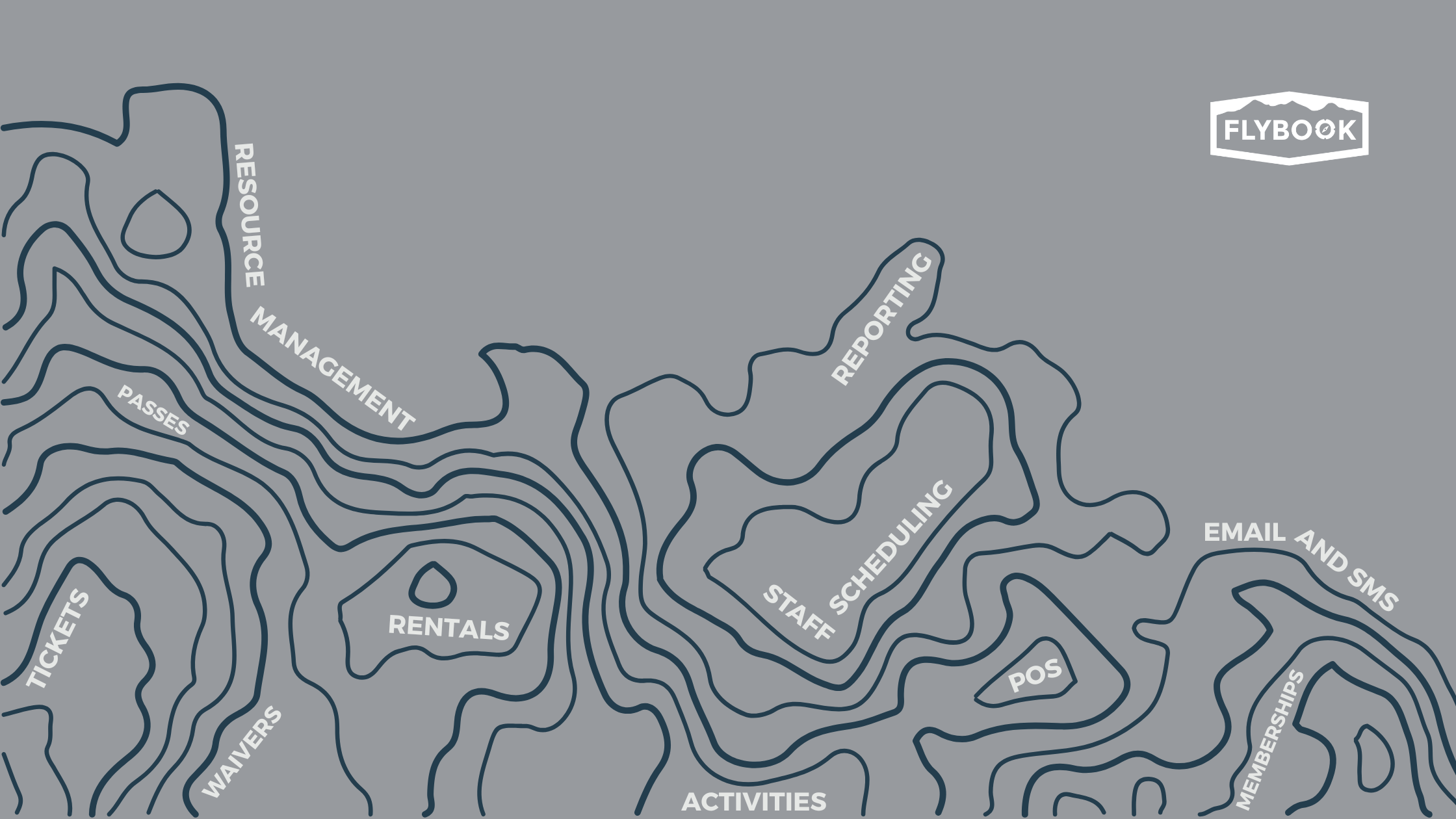For many outdoor recreation businesses, summer is the busiest and most profitable time of year. But when the crowds thin and the temperatures dip, the way you close out your season can determine how well you perform next year. Beyond packing away kayaks or updating your booking calendar, strategic end-of-season actions can set you up for better cash flow, stronger marketing, and a smoother reopening.
Here’s the complete checklist for outdoor operators to tackle both short-term tasks (the here and now) and long-term moves (future-proofing your business).
Table of Contents
Short-Term Priorities: Wrapping Up This Season
1. Financial Reconciliation
Begin by organizing your books. Review revenue, expenses, and any outstanding invoices. If you use a cloud accounting platform, export a seasonal report and flag unusual line items now, when they’re fresh, rather than in tax season.
- Create a preliminary budget for next year based on this year’s actuals.
- Evaluate which offerings had the highest margins so you can prioritize them next season.
- Evaluate and plan pricing adjustments, one of the most powerful levers for next year’s profitability.
Wrap up your season smarter with Flybook’s reporting. Easily pull detailed reports, capacity, permits, and more, so you can finish strong and plan with confidence. See Flybook’s reporting in action here.
2. On-Site Organization & Inventory
Your gear is your lifeblood. Conduct a full inventory of equipment, including boats, harnesses, helmets, and radios, and log the condition of each item digitally.
- Tag anything needing repair or replacement.
- Perform end-of-season safety checks to meet insurance and regulatory requirements.
- Reorganize your equipment to store necessary items in climate-appropriate spaces to extend their life.
3. Staff Debriefs & Feedback
Your staff spent the summer on the front lines; their input could be your most valuable review. Host wrap-up meetings or anonymous surveys to capture their insights.
- Ask what processes or tools slowed them down.
- Recognize achievements with awards or bonuses where possible.
- Offer off-season opportunities like maintenance work, content creation, or training to retain your best people.
4. Customer Communications
Stay top-of-mind even when your doors are closed.
- Send thank-you emails or newsletters to your season’s guests.
- Collect testimonials and reviews while memories are fresh.
- Offer early-bird deals or gift cards to generate off-season cash flow. According to the U.S. Chamber of Commerce, small businesses using off-season discounts see up to a 20% increase in early bookings the following year.
See how Flybook’s reservation system elevates your marketing, customizable emails, built-in CRM, tailored promos, and more. Explore it here.
5. Legal & Compliance Wrap-Up
Permits, insurance policies, and land-use agreements often have fixed renewal dates.
- Review all documentation and renew well before expiration.
- Close out any incident reports and update your safety and emergency response plans.
- Keep digital copies of everything, reducing paperwork headaches in spring.
6. Digital Assets & Marketing
Before packing up, capture the visual story of your operation while it’s still buzzing.
- Schedule a professional photographer or videographer to shoot end-of-season action for next year’s marketing campaigns. 94% of online shoppers are more likely to trust a site with high-quality product images. “Photo quality” is frequently among the top factors in purchase decisions.
- Audit your website for outdated pricing, schedules, and policies.
- Create evergreen social media posts: “Throwback Thursday” photos or behind-the-scenes maintenance shots, to stay visible year-round.
Long-Term Priorities: Setting Up for the Future
1. Data & Analytics
Your booking platform and POS data contain a treasure trove of insights.
- Analyze customer demographics, peak booking times, and sales channels.
- Identify your most profitable activities or packages.
- Feed this data into your marketing plan and budget for next year.

From guided tours and equipment rentals to lodging and multi-day packages, Flybook’s reservation software gives outdoor operators one versatile platform to manage it all. Simplify bookings, streamline operations, and grow your business with Flybook.
2. Maintenance & Capital Investments
The off-season is prime time for repairs and upgrades that are impossible during peak months.
- Schedule inspections of vehicles, docks, zip lines, or climbing structures.
- Research capital investments, new gear, updated facilities, or tech upgrades, while suppliers offer off-season discounts.
3. Staffing Strategy
Retaining great staff saves money on training and recruiting.
- Reach out early to secure returning employees for next season.
- Offer training, certifications, or leadership development during the off-season.
- Consider a referral bonus program to source new hires from your existing team’s networks.
- Seasonal staff worry about gaps between jobs. Team up with off-season operators; ski, snowmobile, or winter tours, to swap staff and give them steady work year-round.
4. Strategic Reflection & Market Research
Run a mini-retreat or virtual workshop with your leadership team to evaluate your season.
- Conduct a SWOT analysis (Strengths, Weaknesses, Opportunities, Threats).
- Benchmark your pricing, marketing, and reviews against competitors.
- Explore new markets, add-on services, or partnerships to diversify your revenue.
5. Sustainability & Community Engagement
More guests want to support eco-friendly operators. According to Booking.com’s 2024 Sustainable Travel Report, 76% of travelers say they want to choose sustainable options.
- Assess your environmental footprint: waste management, trail wear, and water usage.
- Plan improvements or certifications (Leave No Trace, Green Business Bureau).
- Partner with local nonprofits or suppliers for community projects during the off-season.
6. Marketing & Customer Loyalty for Next Year
Turn your off-season into a marketing incubator.
- Launch loyalty programs, memberships, or “season passes.”
- Refresh your website, booking system, and ad creatives.
- Plan “countdown to reopening” or “behind-the-scenes” campaigns to keep your audience engaged.
To Wrap it up: Set the Stage for a Stronger Next Season
Closing your summer season intentionally is more than tidying up; it’s building a foundation for next year’s success. By addressing finances, inventory, staff, compliance, and marketing now, you’ll open next season with a cleaner slate, a sharper strategy, and a stronger team.

.png)
